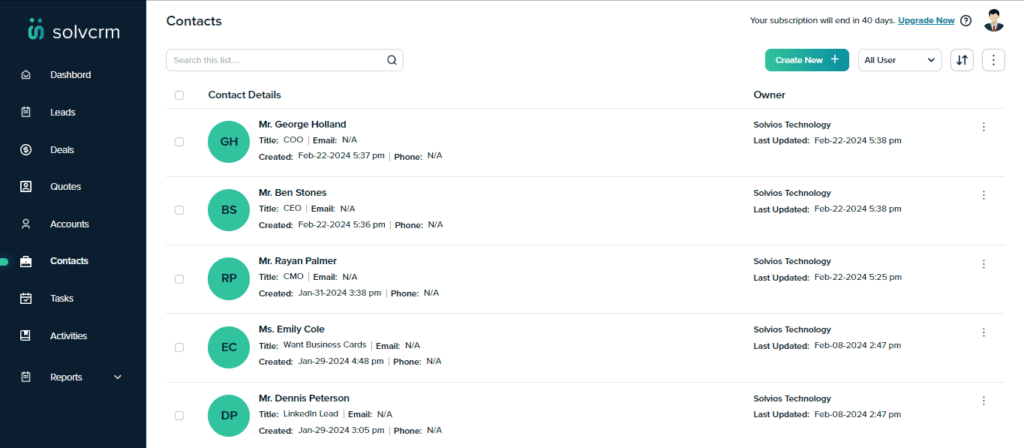Having a CRM for non-profit organizations can be a great move for the organizations as CRM is all about strengthening relations with customers and NGOs basically hinges on relationships with donors and volunteers.
The helping hands to the non-profit organizations support not just with money but with values too and maintaining a robust relationship with them is of key importance for the organization’s team. Customer relationship management helps these organizations quite significantly in doing the same. This blog focuses on how CRM helps non-profit organizations:
Understanding CRM for Non-Profit organizations
CRM systems are thought to be made for the corporate world and somehow it was true too. But, observing its ability to make stronger relationships, it has found its way to other categories too, non-profit organizations being one.
In essence, CRM for non-profits encompasses strategies, processes, and technology aimed at cultivating and nurturing relationships with donors, volunteers, and other stakeholders.
Key Features and Benefits of CRM for Non-Profits
Centralized Data Management:
For an NGO or Non-profit organization, having fragmented and mismanaged donor or volunteer data can cost not just time and effort but errors in funds management as well.
A good CRM software brings all this data on a single platform in a comprehensive manner so that all the authorized members can easily access the data required and swiftly work on that without consulting different individuals about the random files and data. CRM brings every important piece of information in a single picture.
Segmentation and Targeting:
For a non-profit company, it is very important to have sets of the types of donors and volunteers based on their engagement levels and volunteering sections.
The CRM lead management software for e-commerce can help substantially in this segmentation and eventually create tailored communication strategies for each segment. Whether soliciting donations, recruiting volunteers, or promoting events, targeted outreach enhances effectiveness and fosters a sense of connection.
Automated Communication:
With automated communication, the team of the organization can reach more volunteers in less time without wasting money and human effort.
With an automated messaging system, all the essential details like fund-raising events, thank you messages, etc. are timely sent and make the volunteers and donors feel more respected and valued. Adding to that, it ensures transparency in the organization.
Donation and Volunteer Management:
When a CRM for contact management is integrated with volunteer and donor management features, it becomes easier for the administrative team of the organization to optimize the efficiency and credibility of the operations.

Data Security and Compliance:
Good CRM solutions come with robust security features, ensuring that donor and volunteer information is protected as many donors like to keep their identity hidden. The best must have a strong security portfolio that can safeguard against unauthorized access.
Analytics and Reporting:
CRM lead management software not only stores data but performs deep data analysis to find potential donors. With smart reports and analytics excellence, it enables to provide an insightful dashboard to the organization.

Get started With 14-Day Free Trial Today
Implementing CRM: Best Practices for Non-Profits
Define Clear Objectives:
Despite its innumerable pros, you must be very clear about what you are seeking from the software for your organization.
Whether you want CRM for contact management, to increase donor retention, to enhance your volunteer base, or to create strategic fundraising campaigns, you must define your objectives from the implementation.
When your goals are clear, then it becomes easy for you to leverage the most favorable outcomes from the CRM for non-profit organizations.
Select the Right Platform:
Based on your budget, objectives, and organization type, you must select the best CRM for NGOs that can align with the thought process and culture of your place. You must go for CRM software that can cater to the unique needs of your objective and can do justice to your goals of scalability, customization, integration, etc.
Staff Training and Adoption:
CRM is as good as it is used. Train your team members in leveraging the best outcomes from the CRM software employed for them. The users must be well versed in technical and implemental knowledge of the CRM and there must be some support for them by some expert until they completely adapt to the new system. Successful CRM implementation hinges on staff buy-in and proficiency.
Non-profits should invest in comprehensive training programs to familiarize users with the CRM interface, functionalities, and best practices. Moreover, cultivating a culture of continuous learning and adaptation fosters organizational agility and maximizes the CRM’s potential.
Iterative Improvement:
To save time and resources, try implementation in a small batch of users first. Analyze loopholes and collect feedback on the performance and efficiency of the system.
Refine the software and the implementation process according to the feedback collected by batch testing and once all the issues are resolved then go for full-fledged deployment of the CRM software.
Conclusion
The advantages of CRM for non-profit organizations are irreplaceable and failing to embrace good customer relationship management by the organization can cost a lot of effort and time.
So, if you wish to grow from the benefits of the latest CRM technologies, then get a great CRM tool today. You can choose SolvCRM, one of the best CRM software that can cater to your unique needs.
